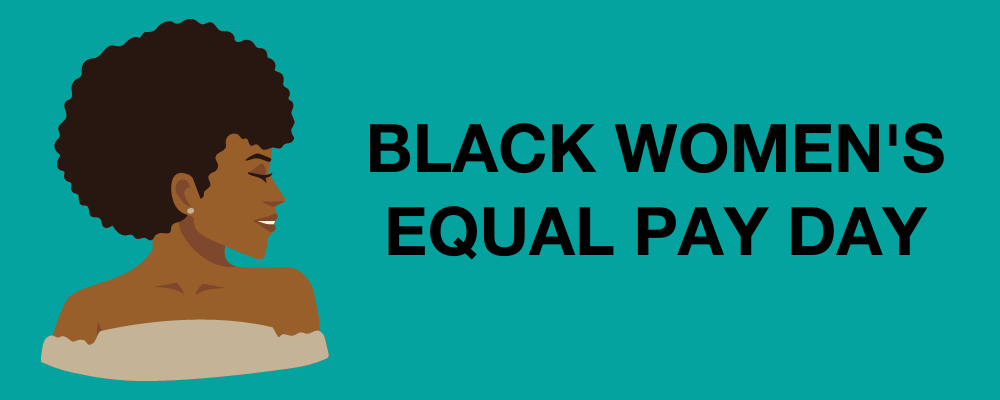This year, Black Women’s Equal Pay Day is August 3. It is also the approximate day a Black woman must work into the new year to earn what a white non-Hispanic man earned at the end of the previous year. This means it would take a Black woman, working full time, approximately eight extra months to earn what the average white non-Hispanic man earns in one year.
This day was created to challenge the legal policy and cultural barriers at the state, local and national level that prevent Black and African American women from achieving equal pay. Based on American Community Survey (ACS) Census data, the 2021 wage gap for Black women compared to non-Hispanic white men is 63 cents.
Economic Policy Institute (EPI) studies show that “Black-white wage gaps are large and have gotten worse in the last 20 years,” EPI economist Elise Gould wrote in a blog post last year. “Even Black workers with an advanced degree experience a significant wage gap compared with their white counterparts.”
Our purpose at Goodwill Industries of the Southern Piedmont is to help people see possibilities, seize opportunities and prosper. Of the people we serve, many are women within the Black community. We recognize that closing the wage gap for Black women is a key part of the work our community must do to help remove barriers and dismantle systems of oppression holding women of color back.
We cannot achieve racial equity without gender equity.
Goodwill helps people in our community have equitable access to career opportunities through job training and employment services offered at no cost. That includes GoodWork Staffing, which helps people find job opportunities, Goodwill University, which provides in-demand skills training in high-growth fields, along with career coaching to help people uncover and achieve their goals.
According to another study conducted by EPI, Black women are more likely to be essential workers and more likely to have lost their jobs during the pandemic. In addition to being paid less than their white male counterparts, they have been disproportionately impacted by the unemployment crisis.
One key factor for organizations to recognize when we talk about closing the wage gap, especially during a pandemic, is that nearly 40% of Black workers don’t have access to paid sick days. When Black workers or their families get sick, they can lose wages, or even their job, for staying home.
It takes intentional and concerted effort to ensure fair and inclusive pay policies. In an article by Michael A. Tucker, he shares actions employers can take to ensure pay equity for people of color. Although we know employers can be a great asset in helping to close the wage gap within their organizations, we still must address the federal policies that prevent Black and African American women from achieving equal pay.
At Goodwill, we aim to create an environment where all people can see possibilities, seize opportunities and prosper. Honoring this purpose, we will continue to advocate for Black Women’s Equal Pay Day to ensure Black women in our community and beyond can live the life they envision for themselves and their families.








Join the Conversation